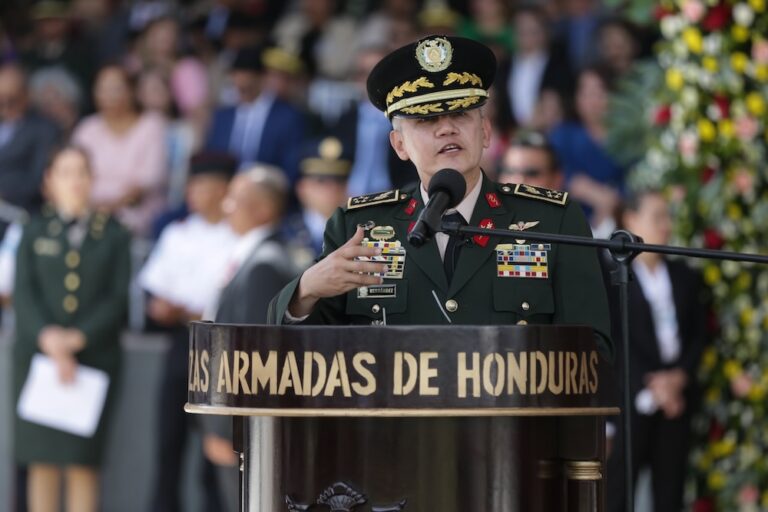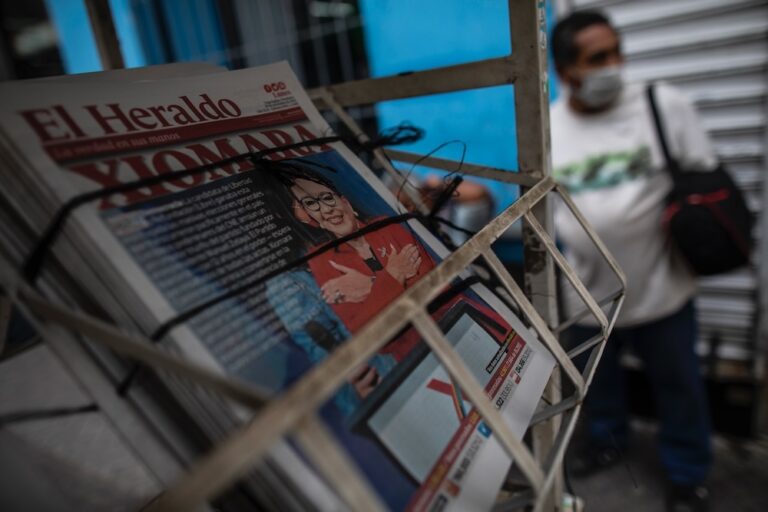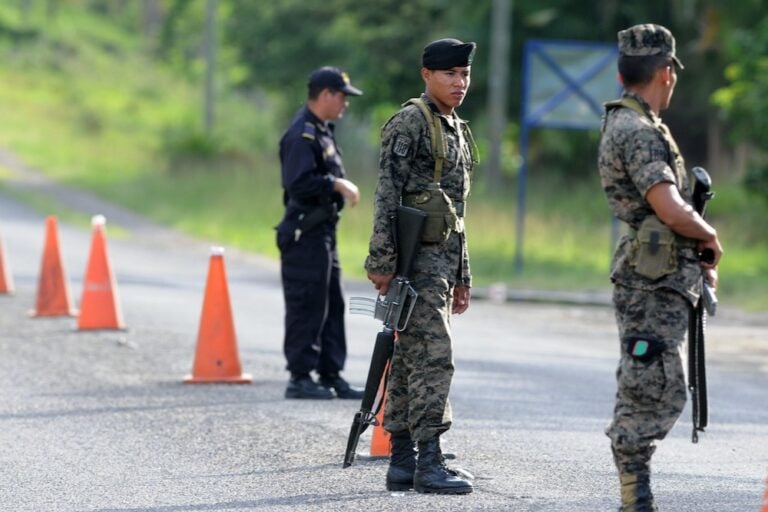(PROBIDAD/IFEX) – After meeting with a delegation from the Civic Alliance for Democracy (Alianza Cívica por la Democracia, ACD), National Congress president Roberto Michelleti announced that the third and final debate on the proposed Transparency Law, which concerns public access to information, will be held in two weeks’ time. “However,” said Michelleti to the ACD […]
(PROBIDAD/IFEX) – After meeting with a delegation from the Civic Alliance for Democracy (Alianza Cívica por la Democracia, ACD), National Congress president Roberto Michelleti announced that the third and final debate on the proposed Transparency Law, which concerns public access to information, will be held in two weeks’ time. “However,” said Michelleti to the ACD delegates, “I am going to ask a favour of you: do not come to impose your will on us, but to engage in a dialogue.
Michelleti, together with the other five party leaders as well as the vice-president of the Parliament, Lizzie Flores, stated that, after having received several appeals from various sectors, “we wish to reiterate that we will listen to you, including to those opposing the current draft of the law, in order to find an arrangement that will work – so that we create a good law.”
“However,” he added, “we ask you not to come trying to dictate anything to us. We have received requests – not impositions – from the G-16 the community of countries providing development assistance], but we are not going to comply with them. We are ready to get moving on this law, which is so much needed in Honduras, and we will take into account the perspectives of all sectors, including yours, because we believe each position has merit,” added the deputy, head of the parliamentary caucus of the governing Liberal party.
Micheletti stated that Vice-president Flores is the person now responsible for the drafting and improvement of the Transparency Law. “She will receive you all with pleasure. Your perspective is very valuable.”
The ACD met with Micheletti and the other party representatives on 19 September 2006 to initiate a dialogue aimed at influencing the position of the members of the legislature on the proposed Transparency Law.
In that meeting, Francisco Machado, executive director of the ACD and member of the Association of Western NGOs (Asociación de Organizaciones No Gubernamentales de Occidente, Asonog), expressed his doubts about the current draft of the law, which, in its current form, is yet another element favouring corruption and impunity in Honduras.
Machado said that they supported the position of the G-16 calling for changes to the bill, so that the proposed law will not establish so many “rights” to keep information confidential, preventing citizens from having real access to government information and from participating in public decision-making and making government socially accountable.
The president of the Congress, less antagonistic than in previous meetings, stated that the final discussion of the law would take place in two weeks, and would entail the airing of various perspectives, “including by those that object to the law as it now stands.”
Moreover, he said that he was going to consult with Honduran President Manuel Zelaya, “so that he can guide us and tell us what he expects of the law, and how these expectations address the international community’s views on the issue.” In recent weeks, Micheletti and President Zelaya have received many letters of protest from international organisations fighting corruption, including Transparency International, which warned that the current version of the law is inadequate and would not improve the country’s poor image vis-à-vis corruption.
On the afternoon of 20 September, more than 100 university students from the School of Journalism of the public National Autonomous University of Honduras staged a protest outside the National Congress, submitting a petition signed by students requesting an improved law on transparency and access to public information.
This alert was prepared by PROBIDAD with information provided by the Committee for Free Expression (Comité por la Libre Expresión, C-Libre).


